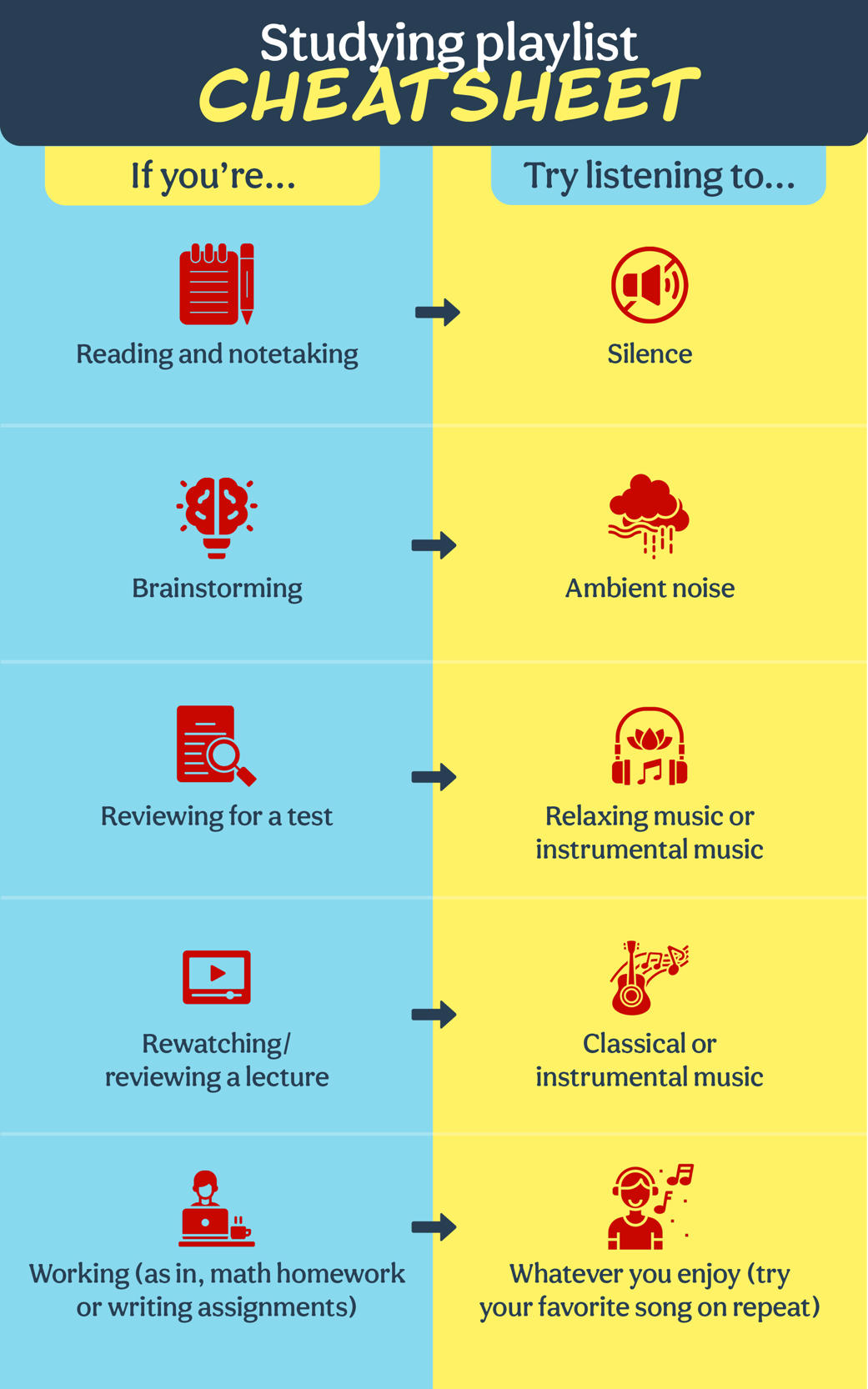Can Listening to Music While Studying Improve Memory?
Exploring the Impact of Music on Studying and Memory Retention

Frequently Asked Questions
Not necessarily. The effectiveness of music as a study aid varies from person to person, depending on their preferred study environment and the type of music they listen to.
Instrumental music, classical, ambient, and genres like lo-fi or chillhop have been found to be less distracting and more conducive to focusing on study tasks.
Step by Step Guide
1
Understanding Memory
Memory refers to the processes that are used to encode, store, and retrieve information. These processes are essential for learning and can be influenced by various factors, including the environment in which one studies.
2
The Role of Music in Cognitive Performance
Research has shown that music can have a significant impact on cognitive performance. This includes improved concentration, enhanced mood, and increased motivation when studying. Understanding how music affects these aspects is crucial.
3
Types of Music
Different types of music can have varying effects on memory and concentration. Instrumental music, classical pieces, and ambient sounds are often recommended for studying, as they tend to minimize distraction while providing a soothing background.
4
Understanding the Mozart Effect
The 'Mozart Effect' is a term that refers to a set of research results indicating that listening to Mozart's music can induce a short-term improvement on the performance of certain kinds of mental tasks known as 'spatial-temporal reasoning.'
5
Creating Your Ideal Study Playlist
To create an effective study playlist, choose music that you find calming and non-intrusive. This could include instrumental tracks or specific genres like chillhop, lo-fi, or classical music to assist in maintaining focus.
6
Timing Your Music Sessions
It's important to time your music sessions appropriately. For example, listening to music during breaks can rejuvenate your mind, while low-volume music during study sessions can help maintain concentration.
7
Conducting Personal Experiments
Experiment with studying both with and without music to see which method improves your retention and focus the most. Track your performance on tasks to determine the influence of music on your studying.
8
Creating a Conducive Study Environment
Make sure your study environment is comfortable and free from distractions. This includes arranging your study materials and optimizing lighting, as these factors, when combined with music, can enhance memory retention.
9
Listening Preferences
Individual preferences play a significant role in the effectiveness of using music as a study aid. Some might find silence more beneficial, while others thrive with background music. It's essential to tailor your approach to what works best for you.
10
Understanding Music’s Emotional Impact
Music can evoke emotions, which can facilitate learning and memory. Understanding how specific songs or genres make you feel can help you create a more effective studying strategy.
11
Evaluating Your Results
After implementing music into your study routine, take time to evaluate how it has affected your memory, retention, and overall learning experience. Document your findings for future reference.
12
Continuous Improvement
Learning and studying techniques should be subject to continuous improvement. Regularly assess your study habits and adapt your music choices and studying environment as needed to optimize memory retention.
13
Seeking Further Research
Stay updated with ongoing research in the field of cognitive psychology and music's influence on learning and memory. New studies can provide fresh insights and strategies for effective studying.
14
Applying Findings Beyond Studying
Consider applying what you learn about music and memory in various aspects of your life, including relaxation, meditation, and even social interactions.








